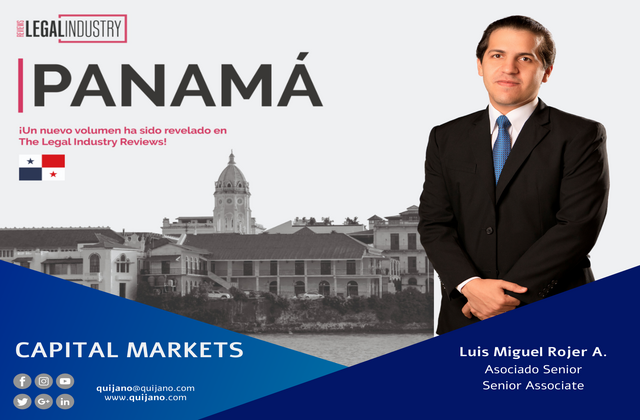COVID-19 Pandemic Force Majeure And Fortuitous Event

It is barely a month since the World Health Organization (WHO) declared Covid-19 as a worldwide pandemic, which has brought with it a negative impact on the health and economic sector worldwide.
Eventually, as it happened in Wuhan, China, we estimate that the virus will disappear, however, the vestiges that it leaves with the passing of days in the companies, businesses and affected families are becoming irreparable.
Consequently, in Panama, sanitary measures have been taken to avoid the spread and contagion of the virus, drastic but necessary measures, which have dictated the closure of commercial establishments and companies of natural or legal persons, as well as the restriction of the mobility of people (curfew and sanitary fences).
In their great majority, the companies affected by these measures will not be able to fulfill their contractual obligations and responsibilities regarding their operation, for which reason they will surely fall into various situations of non-fulfillment of the obligations they have with their contractors and manifest their insolvency to their creditors, therefore they will surely be forced to invoke a situation of fortuitous event or force majeure depending on their activity and the cause that generated the impossibility of non-compliance with their obligations.
In this sense, Panama’s civil legislation has defined force majeure in Article 34-D as the situation produced by human acts, which humans cannot resist, such as the acts executed by public officials, the arrest by enemies, and others alike.
Now, force majeure has specific characteristics, namely: (i) it must be produced by human acts, (ii)
that it is not possible to resist. In this case, the closure of commercial establishments is conjured as an impossible act to resist due to the compulsory effect of the act instructed by a public authority,
exonerating the affected party that has fully or partially breached its obligation from liability, so it shall not be liable for damages, delays and / or damages caused, but it will not be exonerated from complying with its obligations when the event of force majeure, in this case the Covid-19 virus, has disappeared, and the sanitary measures applied are lifted; (iii) that the inevitable act must be the cause and result in the breach of the obligation.
At the time that the measures and acts that generated the force majeure are lifted, the companies will be in a position to resume their contractual obligations immediately without being able to fulfill them in the conditions initially agreed, so they will be forced to evaluate together with its contractual counterparty new terms, costs, prices and / or expenses for the stoppage, and determine if the costs of resuming are higher than extinguishing the obligation, or if the obligation is extinguished and the contract should be “de facto” terminated. The truth is that both parties will have to evaluate the nature of the contractual obligation affected and determine the best scenario for the parties.
Many companies, although they can invoke the causes of force majeure introduced in their contracts (or not), and be exempt from non-compliance and its effects, many of them will still not be able to fulfill their intrinsic obligations as a result of the turn of their operation, being in a state of insolvency or lack of liquidity.
So far we have established a conceptual reference and developed the effects of force majeure that, in our opinion, will operate in a multiplicity of contractual instruments perfected before and during the period of the pandemic; however, in some cases we will also be able to observe companies in non-fulfillment situations invoking the well-known figure of the fortuitous event.
Although the legal effects of force majeure are identical to those of the fortuitous event, unlike the first, the fortuitous event is not generated by an act of the human being that compels the recipient to obey it with inescapable force, but the latter is generated in an unpredictable way by forces different from the will of man.
Let us see what to the effect consecrates our civil code in fortuitous event in its article 34 D.
“Article 34-D …
…
It is a fortuitous event that comes from events of nature that could not have been foreseen, such as a shipwreck, an earthquake, a conflagration and others of the same or similar nature. ”
As we have explained, we are of the opinion that force majeure will be invoked post Covid-19, as a legal shield against claims and demands from contractors, creditors and others, as an exemption from liability; however, we cannot fail to refer to the figure of the fortuitous event, which we believe could also be invoked because the Covid-19 is capable of causing a well-founded fear of contagion in some contractor without there being a previous order from any authority that makes it impossible to fulfill a contractual duty, especially in those cases of obligations that had to be fulfilled abroad where Perhaps the Covid-19 had already triggered its pathogenic effects and they was public knowledge even before the foreign authorities would take restrictive measures in this regard.
In this order of ideas, the figure of the fortuitous event could also be generated in the event of hospitalization of the people assigned to fulfill an obligation, since this is a fact of nature, unpredictable and that has necessarily prevented the obligor from duly fulfilling with the contractual mandate or duty, which fits perfectly in the exceptional circumstances that can exempt the parties from the fulfillment of said obligations.
Without prejudice to the differentiation that we have exposed here above, it must be clear that both the fortuitous event and the force majeure refer to the impossibility, not attributable to the debtor or holder of the obligation, of making the due provision and producing the effect , generally, to exonerate the debtor from the fulfillment of his duty, releasing him from his obligation despite not having satisfied the right vis-à-vis the creditor or who should receive the benefit.




